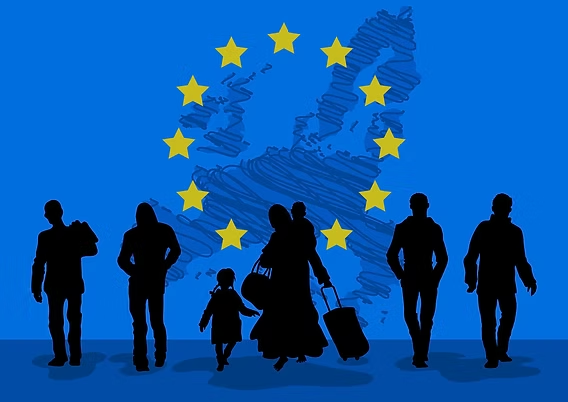Introduction
Migration to Europe remains one of the most complex and controversial issues in contemporary European politics. Since the surge of refugee arrivals in 2015, the European Union (EU) has pursued a mix of restrictive border policies and humanitarian efforts. However, tensions between member states over burden-sharing, border security, and asylum rights continue to shape the EU’s evolving approach.
Border Control and Security Measures
The EU has significantly tightened its external border controls through agencies like Frontex, which oversees border surveillance and interceptions at sea. The introduction of agreements such as the EU-Turkey deal (2016) aimed to curb irregular migration by returning asylum seekers to Turkey in exchange for financial aid and resettlement quotas. Additionally, the EU has cooperated with North African countries like Libya to prevent migrant departures, often sparking criticism over human rights violations in detention centers.
Asylum and Burden-Sharing
The Common European Asylum System (CEAS) was designed to standardize asylum procedures, but disparities remain among member states. Countries at the EU’s external borders, such as Italy and Greece, bear the brunt of new arrivals, while wealthier northern states often resist compulsory relocation mechanisms. The 2023 EU Migration and Asylum Pact seeks to address this by introducing a “solidarity mechanism,” allowing states to either accept asylum seekers or provide financial support.
Humanitarian Challenges
Despite security measures, the EU faces criticism for neglecting the humanitarian aspect of migration. Thousands of migrants perish while crossing the Mediterranean, and many others endure dire conditions in refugee camps. NGOs and human rights organizations urge the EU to prioritize safe legal pathways, expand resettlement programs, and improve conditions for asylum seekers.
Conclusion
EU migration policy remains a contentious issue, balancing between border security and humanitarian obligations. While recent reforms aim to enhance burden-sharing and streamline asylum processes, challenges persist in achieving a fair and effective system. The future of EU migration policy will likely depend on political will, cooperation among member states, and adherence to international human rights commitments.

